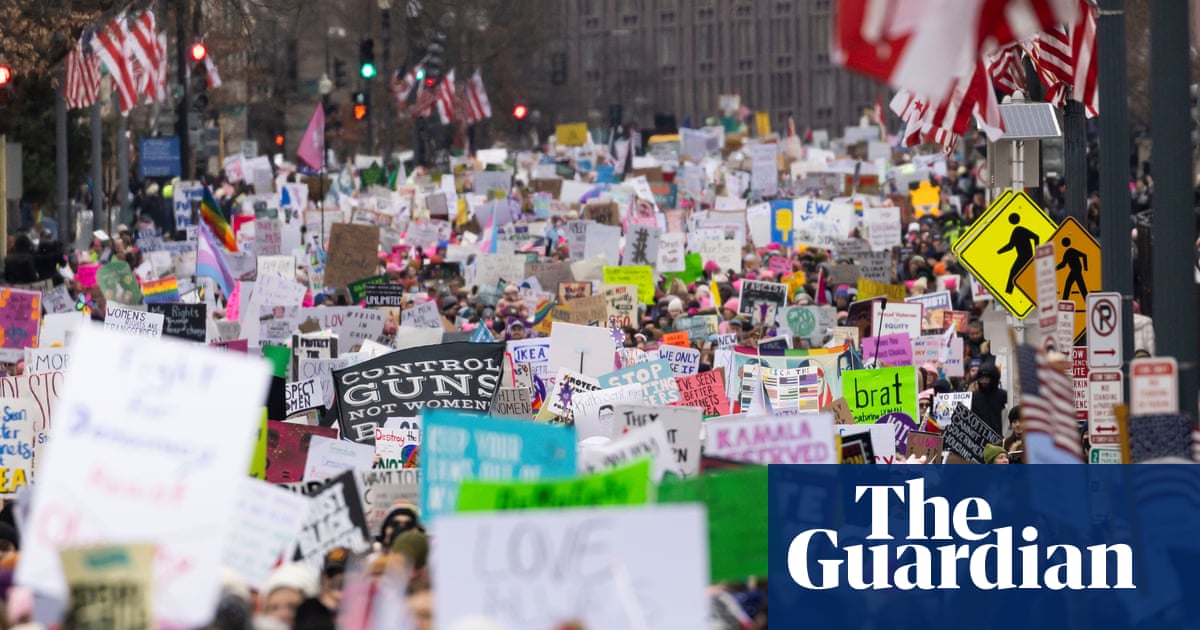The UK government’s family reunification policy has been criticised by charities and MPs after new data revealed how Home Office bureaucracy was making it impossible for people stranded in war zones, such as Gaza and Sudan, to reunite with family members in the UK.
Existing policy is supposed to allow those in need of resettlement the opportunity to join relatives in the UK. In order to apply for family reunion visas, applicants must submit biometrics – usually a fingerprint and a photograph – at appointments at a visa application centre (VAC) in their country of residence.
But in Palestine, Sudan and Afghanistan, VACs have been forced to close by the ongoing conflicts that have killed tens of thousands of civilians and upended millions of lives.
The need for a biometric submission can be waived by the Home Office, but figures seen by the Guardian, revealed through Freedom of Information requests, show that only a small number of people who submitted applications to join family in the UK were granted biometric excusals.
It means people seeking to apply for resettlement are forced to attempt dangerous and often illegal journeys across borders into neighbouring countries to reach VACs, which charities say is putting individuals at risk of exploitation and abuse.
The process has been described as not fit for purpose by MPs who have highlighted the disparate and complex approach to resettlement of people in the Middle East and Sudan, compared with the relatively straightforward way in which Ukrainians could apply to travel to the UK after Russia’s invasion in 2022.The figures show that from May 2023 to February 2024 only 15 predetermination cases – when the result of an application is decided before biometrics are submitted – were authorised.
As of May 2024, there were 114 deferral requests – when the requirement to submit biometrics is delayed until the person arrives in the UK – and 84 exemption requests – in which an applicant is excused of providing biometric information. As of February 2024, eight predetermination cases and one excusal had been authorised.
Ukrainians have been allowed to travel to the UK without submitting biometrics beforehand. The same concessions have yet to be applied to individuals in Palestine, Afghanistan and Sudan, who accounted for the highest number of the 198 predetermination and biometric excusal requests made between May 2023 and April 2024, according to the figures.
“The UK rightly welcomed Ukrainian refugees fleeing war. Why can’t the same compassion be shown to people from Gaza and elsewhere?” a coalition of independent MPs, including Jeremy Corbyn, told the Guardian.
A private member’s bill moving through the House of Lords is seeking to expand the criteria for who qualifies as a family member of a refugee and people granted humanitarian protection, as well as legal aid.
“There shouldn’t be a two-teired system,” the equalities minister in the Scottish parliament, Kaukab Stewart, said after writing to the Home Office in November calling for a bespoke scheme for Palestinians, months after it was first urged by the Gaza Families Reunited campaign and almost 60 charities, law firms and organisations.
The UK charities Ramfel and Safe Passage, which are supporting individuals reuniting with family in the UK from Gaza, Sudan and neighbouring countries, said “too many families” had had applications blocked by the policy.
Nick Beales, the head of campaigns at Ramfel, said: “This disclosure, though, proves that it was actually impossible for people in conflict zones, such as Sudan and Gaza, to apply for visas even when they had clear family ties in the UK.” He has called on the home secretary to prioritise creating safe routes for those in conflict zones.
“Though the government now claims that they may excuse people from attending visa centres to enrol biometrics, in practice they have never excused anyone from this requirement,” said Beales.
Ramfel has said it believes many deferral requests have only been approved after court intervention. According to the FOI data obtained by the charity, 66% of appeals against Home Office decisions between 2019 and 2022 were successful.
Among those being assisted by Ramfel are two Eritrean children seeking to join their brother, 24, in London. The individual, who asked to remain anonymous, fled Eritrea in 2015 to avoid forced recruitment into the military after their father was taken by the army.
Now a refugee in the UK, he said he worried for his two siblings who had fled to Sudan, then fled the war there, and were now sleeping rough in Egypt, relying on charity from strangers. Two family reunion applications for the brothers have been rejected and an appeal is expected to stretch the process past two years.
“I am worried every day,” their brother said. “If they don’t accept them as well it’s going to [put] me in [a] worse situation than I’m in now.”
A Home Office spokesperson said they “understand” individuals may face challenging circumstances to reach a VAC to submit biometrics. “That is why individuals have the option to submit a biometric deferral request, which is assessed on its own merits, and exceptional circumstances are considered.”
According to Safe Passage, in 2023, 55% of the children they worked with had had their family reunion case refused in the first instance. After appeal, 94% then successful.
“Too many families, and unaccompanied children, trying to leave the onslaught in Gaza, the conflict in Sudan and persecution in Afghanistan have had their applications to reunite in safety blocked under this policy,” said Wanda Wyporska, chief executive at Safe Passage International.
Article by:Source – Geneva Abdul















